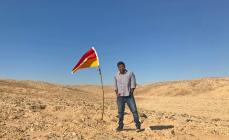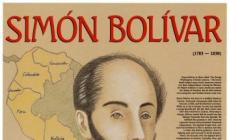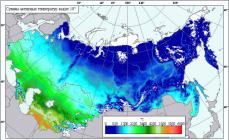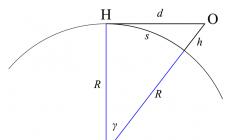, Monk Martyr.
In the world Gabriel Ivanovich Belsky, was born in Moscow. His father, Prince Ivan Ivanovich Belsky, boyar of Ivan the Terrible, was executed when Gabriel was seven years old.
In his mature years, the young prince, seeing the tsar's disfavor for his family, retired to Vologda and settled with a chebotar, from whom he learned the craft of shoemaking. He married a simple girl and lived happily with her by his labors. His marriage was short-lived, and soon his wife died, leaving behind a newborn daughter.
The vicissitudes of earthly life strengthened in Prince Gabriel the intention to devote himself to God. Having entrusted his young daughter to relatives, he dug a place on the Sodima River with a ditch, set up a cell near the Church of the Holy Trinity and, having taken monastic vows with the name Galaktion, began to ascend in fasting and prayer. The ascetic did not abandon his craft, and he divided the money received for his work into three parts: one he dedicated to God, the other he gave to the poor, and the third he fed himself. Growing up in spiritual life, the Monk Galaktion shut himself up in his cell, chaining himself to the wall with a chain. God-fearing Christians served him food through the window. The ascetic rested little, kneeling and holding on to the chain, eating only dry bread and water. In the cell of the Monk Galaktion there was nothing but a shabby mat with which he was covered.
Soon people began to come to the recluse for spiritual advice, and he equally received both the rich and the poor, his word was filled with strength of spirit, comforted the grieving and admonished the proud. In prayer, the Monk Galaktion attained special spiritual grace.
Once, when in the Vologda land for a long time there was no rain, Bishop Anthony came with a procession to the Church of the Holy Trinity and sent to ask the hermit to pray together with everyone for deliverance from the common disaster. The Monk Galaktion obediently left his cell and prayed in the temple, and the Lord sent a heavy rain to the dried up land.
The ascetic was revealed by God about the disasters ahead of Vologda. He left the cell and, chained in chains, came to the zemstvo hut and announced: “ Sins have called on us Poles and Lithuania. Let them begin fasting and prayer and hasten to build a temple in honor of the Sign Mother of God, and the Heavenly Queen, as before Novgorod, will deliver Vologda from the wrath of God».
One of those present, Nechay Proskurov, said: “ He does not care about us, but about himself, he only wants to have a temple near him. And what will happen to the temple when you die, old man?»
Reverend Galaktion answered sternly: “ Anger is close to Vologda. As for me, God will be glorified in my place - a monastery will be built", - and said that the Trinity Church, built by Nechay, would be burned and Nechay's house would be desolate. Passing by the church in honor of the Monk Dimitry of Prilutsky, he said: “ The miracle worker Demetrius prayed to the Savior for the city, but he was insulted - around the church they set up shops and started a commercial noise. And this temple will be ravaged».
The prophecy of the righteous was soon fulfilled. In September, Poles and Lithuanians broke into Vologda, killed many residents, desecrated and robbed the temples of God, and then set fire to the city and townships. As the Monk Galaktion predicted, the house and temple built by Nechai were burned down, as was the city temple in the name of Saint Demetrius.
The Monk Galaktion was killed by the conquerors on September 24 of the year.
Pious Christians buried the body of the Monk Martyr in his cell. Miraculous healings began to take place over the burial place.
Under Bishop Barlaam, a church was built over the relics of the Monk Martyr Galaktion in honor of the Sign of the Mother of God and a monastery was founded. With the blessing of Archbishop Markell, the monastery was built cathedral temple in the Name of the Holy Spirit, and the monastery was named after this temple.
Troparion
Today the city of Vologda is boasting of you all over the world, / you have shone brightly like the sun / and your miracles, the city and weight, venerable Galaktion, illuminated you. / And now pray to the Lord / rid our souls of the charm of the enemy / save our graduation from the ragamuffin and all against / and ask Christ God for love for those who honor thee / forgiveness of sins / and for those who ask for your help from all sorrow for deliverance, and crying out to you: / Our God is with us, glorifying His saint, as if you were well pleased.
Kondak
Having lived piously on the earth / and the torment you received the crown, most honorable, / you were killed by the tree at the head of those who found the city destroyers, / the good disciple of Christ the Savior, / leaving your native city and friends / wandering in love for the sake of Christ, you evangelically deigned. / For this, for the sake of we honor you. , with songs crying: / save us from troubles with your prayers, / God's servitor Galaktion, our father.
Used materials
- Life and Icon from the website Official Church Calendar
- Article of the Orthodox Encyclopedia:
Galaktion Vologda, recluse, martyr (sc. 24.09.1612), in St. baptism Gabriel, son of the boyar Belsky, a descendant of the Lithuanian princes, executed during his youth Ivan the Terrible, when Gabriel was seven years old. He was hidden by his father's friends in Staritsa, where the monk received his education. But from there, at the direction of God, he retired to Vologda, studied shoemaking there, married a simple girl and lived happily with her by his labors. After the death of his wife, Gabriel entrusted his young daughter to his relatives, and he himself built a cell, dug a well and a pond nearby, surrounded it with trees, surrounded it all with a fence and settled there, taking monastic vows with the name of Galaktion. He chained himself to the ceiling, ate bread and water, dozed on his knees. The townspeople who venerated him came to the saint for advice and guidance. Once he advised the townspeople to erect a one-day church in the name of the Sign of the Mother of God, but this was rejected. Then the monk sadly predicted that the churches: St. Demetrius of Prilutsky, which was all surrounded by trade shops, and Holy Trinity, erected by a certain rich man who was hostile to him, would be ruined. “You will see what will be soon,” he added. In September 1612, Poles and Lithuanians came to Vologda and destroyed the churches. During the invasion, the Poles seized the saint as well, pounced on him, beat him and pulled him out of the hut by a chain, stabbing him with a sword. A log was thrown over the saint's head. He endured in silence and died on the third day. They buried him in a cell. Then the saint's fellow citizens repented and erected on his grave a church in the name of the Sign Holy Mother of God... When the brethren gathered, they erected another church in the name of the Descent of the Holy Spirit - this is how the Holy Spirit Monastery. From the relics of St. Galaktion flowed many miracles, as well as from the water of the source he dug.
Galaktion (in the world of Prince Gavrila Ivanovich Belsky) - the Monk Martyr of Vologda, Unity. son of Prince I.I.Belsky, executed by order of Ivan the Terrible, when G. was approx. 7 years. Relatives, in order to save the child from the anger of the king, took him to Staritsa. Without revealing his origin to anyone, the prince, having reached adulthood, settled in Vologda and began to engage in leatherwork. He got married, but soon became a widow, after which he went to a monastery and got tonsured there under the name G. After a while, having obtained from the Vologda residents a small plot on the river. Sodemka, set up a cell for himself, dug it in from all sides, let water into the ditch and began to live as a hermit. In 1613, Lithuanians and Poles appeared near Vologda, ravaged the city and its environs, and did not spare the solitary cell of G. He himself was severely beaten, as a result of which he died in agony. The local residents buried the hermit in his cell, and a little later a church of the Sign of the Virgin was erected over his grave. By the name of Vologod. saint, the place around the church began to be called the Galaktion desert.
The Monk Galaktion was born in Moscow during the reign of Ivan Vasilievich the Terrible (1533-1584). By origin, he belonged to the most noble boyar family: his father was Prince John Ioannovich Belsky, a descendant of the Lithuanian princes. At baptism, the boy was named Gabriel. His father was subjected to royal disgrace and was executed when the lad was seven years old. His relatives took him to the city of Staritsa, and he lived there, hiding his origin from everyone, and God kept him. The pious youth diligently visited the temple of God, zealously studied the Divine Scriptures, and earned his food by the craft of a shoemaker. Having reached adulthood, he married a girl of a common rank, but his wife soon died, leaving behind a newborn daughter. Seeing this as an indication from above, Gabriel decided to consecrate himself to God. He gave his daughter to be raised by his relatives, put heavy chains upon himself and began to ascend in fasting and prayer. He begged the city dwellers to give him a small plot of land near the settlement on the Sodima River, set up a small cell there and shut himself up in it. Soon he took monastic vows and was named Galaktion. Without abandoning his craft, he sewed boots and divided the earned money into three parts: churches, beggars and himself for food. With his own hands, he dug a pond near the cell, planted it with trees and raised fish in it. The monk spent his days in labors, and his nights in unceasing prayers and spiritual songs. The grace of God enlightened his mind, abstinence and fasting pacified the flesh, solitude and silence developed humility, filled his heart with joy and joy.
Residents of the city of Vologda and the surrounding area, having learned about the wondrous life of the Monk Galaktion, came to look at him, receive a blessing, and hear the word of edification. And the saint was not content with the usual monastic exploits: he chained himself to the ceiling of his little hut, so that he could neither go out of his cloister, nor lie on the floor; when he was overcome by sleep, he only knelt down and in this position, holding on to the chain, for a short time was forgotten in a nap. On rare occasions he left his cell, as, for example, once during a great drought threatening famine, when the Vologda ruler sent for him to ask the monk to pray for the gift of rain in the temple with all the people. The Lord heard the prayers of the righteous man and all the people and sent a heavy rain to drink the earth weary of the heat.
The time of Troubles was then on the Russian land: one after another appeared impostors, and the Poles and Lithuanians wandered around Russia and carried out robberies and violence. Filled with the gift of insight, the Monk Galaktion unhooked his chain and in chains appeared in the zemstvo hut, where the people gathered. He advised citizens to build in one day on the site of their exploits a temple in the name of the Most Holy Theotokos, and the memory of the miracle from the Icon of the Sign in Veliky Novgorod, with the belief that the Queen of Heaven would protect the city and save everyone from the invasion of foreigners. However, the inhabitants of Vologda did not accept the pious advice, and some directly accused the saint of self-interest - they say, he only cares about himself and is too lazy to go to a distant church. In response, Galaktion predicted to the people in detail about the coming disasters, which happened when soon, on September 22, 1612, by God's permission, Poles and Lithuanians attacked Vologda. They burned churches, put many to death, took many captives, and did not spare the saint of God. Pounced on him with fury, they dragged him out of his cell, dragging him, mercilessly beat him, abused him with expletive words, stabbed him with swords, threw a log on his head from the roof of the building. Seeing the approach of his death, the saint prayed to the Lord to forgive him all his sins and deliver him from the airy ordeals. Tormented by his enemies, he reposed in the Lord with prayer on September 24, 1612. Pious people buried him in a cell, which they began to visit zealously, since God glorified His saint with miracles.
Soon, at the request of the citizens of Vologda, Archbishop Varlaam of Vologda ordered to write the life of the saint, to erect a church in honor of the icon of the Sign of the Mother of God in the place of his cell and to gather the brethren. Under the next Archbishop Markella, a cathedral church was built in the name of the Holy Spirit, after the name of the temple and the monastery began to be called the Holy Spirit. The service to the saint was compiled in 1717.
recluse, hieromartyr (sc. 24.09.1612), in St. baptism Gabriel, the son of the boyar Belsky, a descendant of the Lithuanian princes, executed during the childhood of Ivan the Terrible, when Gabriel was seven years old. He was hidden by his father's friends in Staritsa, where the monk received his education. But from there, at the direction of God, he retired to Vologda, studied shoemaking there, married a simple girl and lived happily with her by his labors. After the death of his wife, Gabriel entrusted his young daughter to his relatives, and he himself built a cell, dug a well and a pond nearby, surrounded it with trees, surrounded it all with a fence and settled there, taking monastic vows with the name of Galaktion. He chained himself to the ceiling, ate bread and water, dozed on his knees. The townspeople who venerated him came to the saint for advice and guidance. Once he advised the townspeople to erect a one-day church in the name of the Sign of the Mother of God, but this was rejected. Then the monk sadly predicted that the churches: St. Demetrius of Prilutsky, which was all surrounded by trade shops, and Holy Trinity, erected by a certain rich man who was hostile to him, would be ruined. "You will see what will be soon," he added. In September 1612, Poles and Lithuanians came to Vologda and destroyed the churches. During the invasion, the Poles seized the saint as well, pounced on him, beat him and pulled him out of the hut by a chain, stabbing him with a sword. A log was thrown over the saint's head. He endured in silence and died on the third day. They buried him in a cell. Then the saint's fellow citizens repented and erected on his grave a church in the name of the Sign of the Most Holy Theotokos. When the brethren gathered, they erected another church in the name of the Descent of the Holy Spirit - this is how the Holy Spirits monastery was founded. From the relics of St. Galaktion flowed many miracles, as well as from the water of the source he dug.
Memory of St. Galaktionu is celebrated on September 24 / October 7.
Monk Martyr Galaktion of Vologda. Fearing the wrath of Tsar Ivan the Terrible, relatives of the disgraced prince Ivan Ivanovich Belsky secretly took his seven-year-old son Gabriel to the city of Staritsa. In his mature years, the young prince, seeing the tsar's disfavor for his family, retired to Vologda and settled with a chebotar, from whom he learned the craft of shoemaking. His marriage was short-lived, his wife soon died, and Prince Gabriel raised his little daughter.
The vicissitudes of earthly life strengthened in Prince Gabriel the intention to devote himself to God. Having asked for a place on the river Sodima, he dug it in with a ditch, set up a cell near the temple in the Name of the Most Holy Trinity and, having taken monastic vows with the name Galaktion, began to ascend in fasting and prayer. The ascetic did not abandon his craft, and he divided the money received for his work into three parts: one he dedicated to God, the other he gave to the poor, and the third he fed himself. Growing up in spiritual life, the Monk Galaktion shut himself up in his cell, chaining himself to the wall with a chain. God-fearing Christians served him food through the window. The ascetic rested little, kneeling and holding on to the chain, eating only dry bread and water. In the cell of the Monk Galaktion there was nothing but a shabby mat with which he was covered.
Soon people began to come to the recluse for spiritual advice, and he equally received both the rich and the poor, his word was filled with strength of spirit, comforted the grieving and admonished the proud. In prayer, the Monk Galaktion attained special spiritual grace. Once, when there was no rain in the Vologda land for a long time, Bishop Anthony came with a procession to the Church of the Holy Trinity and sent to ask the hermit to pray together with everyone for deliverance from the common disaster. The Monk Galaktion obediently left his cell and prayed in the temple, and the Lord sent a heavy rain to the dry land. The ascetic was revealed by God about the disasters ahead of Vologda. He left the cell and, chained in chains, came to the zemstvo hut and announced: "Sins have called on us Poles and Lithuania. Let them begin fasting and prayer and hasten to build a temple in honor of the Sign of the Mother of God, and the Heavenly Queen, as before Novgorod (commemorated icons of the Mother of God of the Sign Novgorodskaya on November 27), will save Vologda from the wrath of God. "One of those present, Nechai Proskurov, said:" He does not care about us, but about himself, he only wants to have a church near him. And what will happen to the temple when you die, elder? "The Monk Galaktion answered sternly:" Anger is close to Vologda. As for me, God will be glorified in my place - a monastery will be built, "- and said that the Trinity Church, built by Nechai, will be burned and Nechai's house will desolate. Monk Demetrius of Prilutsky(Comm. 11 February), he said: "The miracle worker Demetrius prayed to the Savior for the city, but he was insulted - around the church they set up shops and started a commercial noise. And this temple will be ruined."
The prophecy of the righteous was soon fulfilled. In September 1612, Poles and Lithuanians broke into Vologda, killed many residents, desecrated and robbed the churches of God, and then set fire to the city and townships. As the Monk Galaktion predicted, the house and temple built by Nechai were burnt, as was the city temple in the name of Saint Demetrius.
The Monk Galaktion was killed by the conquerors on September 24, 1612. Pious Christians buried the body of the Monk Martyr in his cell. Miraculous healings began to take place over the burial place. Under Bishop Barlaam (1627-1645), a church was built over the relics of the Monk Martyr Galaktion in honor of the Sign of the Mother of God, and a monastery was founded. With the blessing of Archbishop Markell (1645-1663), a cathedral church in the Name of the Holy Spirit was built in the monastery, and the monastery was named after this temple.
Based on materials from patriarchia.ru






